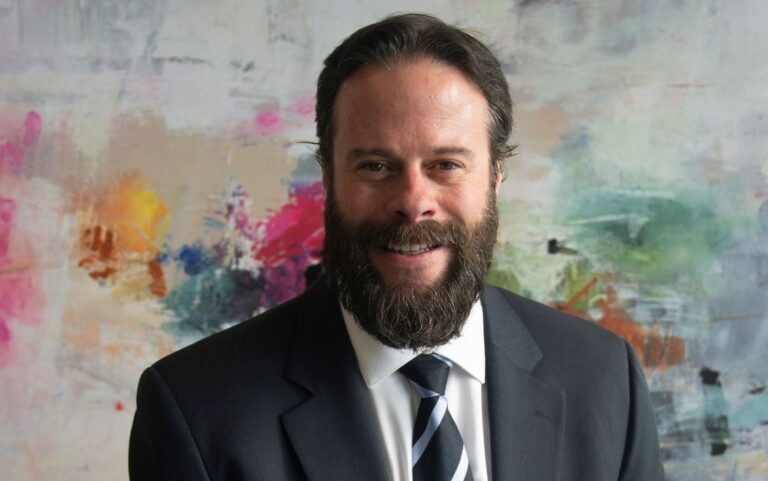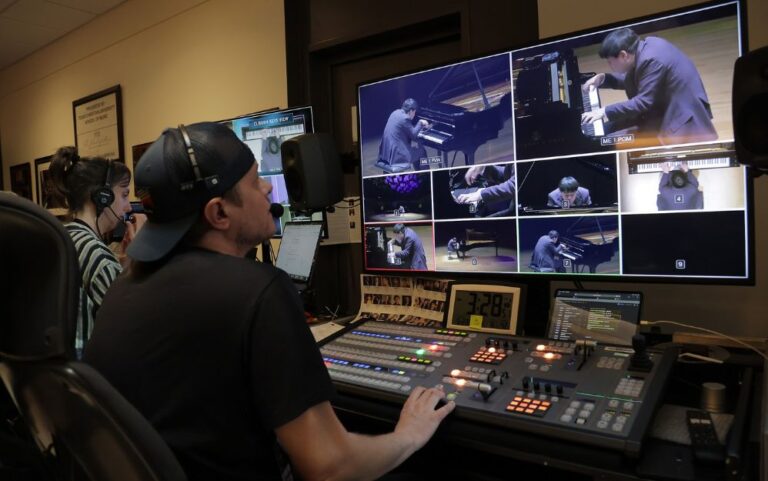U.S. HISPANIC
Diego Ramírez and Billy Rovzar: We, as producers, thrive on taking risks
Aliana González| 4 de diciembre de 2024

Diego Ramírez and Billy Rovzar
The state of production in Latin America and the evolving role of the showrunner were the topics discussed by Billy Rovzar, CEO and producer of Lemon Studios, and Diego Ramírez, partner and executive producer of Dynamo, at MIP Cancun. The conversation covered various aspects, including the importance of platforms funding scripts without cost-cutting measures, the current industry contraction, the value of local content with global appeal, and the ideal role of a showrunner in a production.
Dynamo’s One Hundred Years of Solitude and Lemon Studios’ Las Azules were key examples in the panel, where challenges encountered during these significant productions were discussed.
“I believe we’re currently transitioning back to the pre-pandemic industry standard,” said Rovzar. Ramírez, however, argued that the uncertainty surrounding the pandemic’s duration led platforms to stockpile content. “Post-pandemic, the market is slower and more competitive. The demand for certain content types has shifted, and there’s a reduced appetite for risk. We’re all vying for limited slots and competing with similar content,” Ramírez explained.
Billy Rovzar expressed his hope for a return to riskier productions, stating, “I want us to be allowed to experiment again. I want to see new, unknown actors gain recognition.”
Diego Ramírez noted that the industry is currently prioritizing risk mitigation. “Risks are minimized by relying on intellectual property and established talent. Executives are also subject to increased scrutiny to minimize risk. This approach, however, leads to a homogenized product. We, as producers, thrive on taking risks,” he explained.
ONE HUNDRED YEARS OF SOLITUDE: A CENTURY-LONG PRODUCTION
Ramírez emphasized the unique Caribbean and Colombian flair they infused into “One Hundred Years of Solitude,” premiering on December 11th. This, combined with García Márquez’s timeless themes and character relationships, creates an original and authentic adaptation. Of course, adapting such a beloved IP presented its own unique set of challenges.
Ramírez explained that adapting such a significant and almost sacred literary work as “One Hundred Years of Solitude” presented numerous challenges. Remaining faithful to the novel’s essence, approaching it with respect, yet without fear, was crucial. He highlighted the adaptation work of José Rivera, who initially tackled the challenge of structuring the novel into chapters. “From there, we collaborated with Colombian writers to refine the script further,” he said.
“Condensing a century into a 16-hour series is a monumental task,” he said, adding that capturing the passage of time was another challenge. As a hundred years unfold on screen, the town evolves, and the actors age. He mentioned that the rights negotiation process alone took over five years. “From pre-production to the present, it’s been two years. The next eight chapters will be released soon, followed by the remaining eight within a year. It’s almost a century-long production,” he joked.
Rovzar described Las Azules, their first series with Apple, as “the girl everyone wants to dance with, but you have to ask her father’s permission and take her to dinner.” He added that the development phase alone took a year and a half.
THE GLOBAL AND THE LOCAL
Rovzar emphasized the paramount importance of the script in content creation, asserting that platforms should not cut corners in this area. “The script demands respect,” he said. He highlighted the significance of a showrunner who both writes and is present on set, ensuring the maintenance of rhythm and tone.
On this topic, Ramírez commented that the most crucial quality for a showrunner is the ability to make informed decisions. “Often, creative choices have production implications, or vice versa. The key is having the judgment to make critical decisions during production,” he said.
Regarding the balance between local and universal appeal, Ramírez argued that authenticity always stems from the local. He criticized series constructed as a collage, claiming they lack a specific cultural identity and therefore fail to resonate with any audience. Rovzar echoed this sentiment, asserting that the specific and local can achieve universal appeal. “We only create series that we ourselves would enjoy watching,” he stated.















